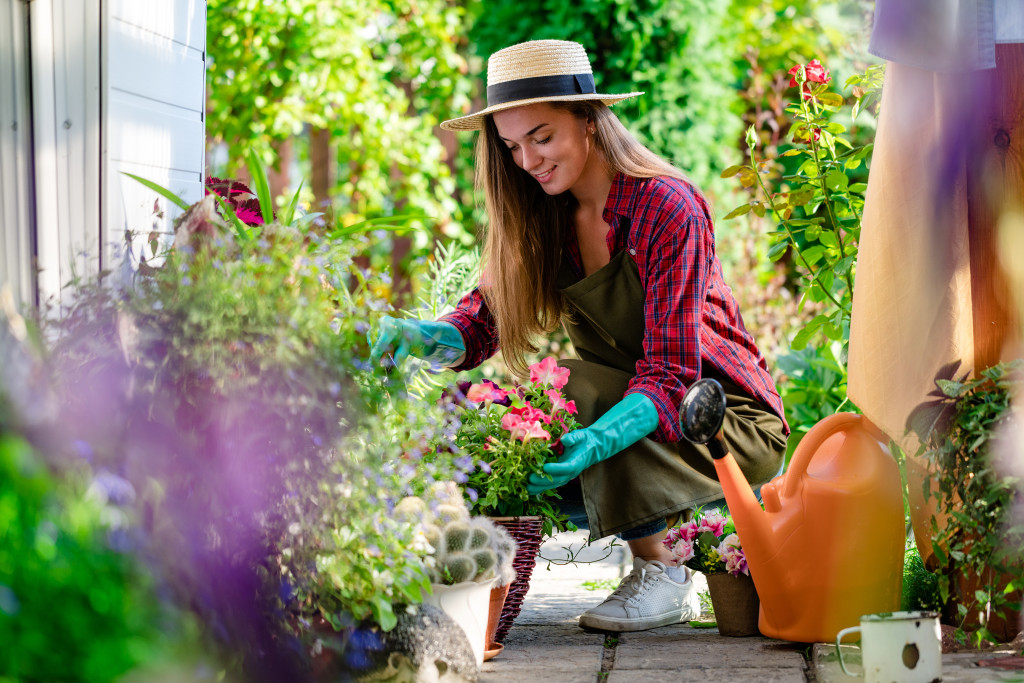The COVID-19 pandemic has forced people into their homes. Even as states started easing lockdown restrictions, many are still wary of going out for fear of contracting the coronavirus.
Quarantined in their homes, many have turned to gardening to fill their newfound free time. As a result, the pandemic has caused a surge in home gardening activities. Food insecurity is one of the biggest consumer concerns amid the pandemic, with the community quarantines disrupting food supply chains.
To achieve some degree of food security, homeowners across the country have started growing their own vegetable patches. Their harvests supplement their food supply and help them avoid trips to the store, which also reduces their risk for virus transmission.
However, a study found that the COVID-19 gardening boom is about more than food. Apart from gaining more control over their food source, many people see gardening as a therapeutic hobby. In a way, gardening fulfills people’s desire for contact with the outdoors, creative expression and purpose, and work that yields tangible results.
Psychological Benefits of Gardening
Gardening has long been associated with mental health. Exposure to nature is linked to better cognitive functioning, from better impulse control to greater resilience during stressful life events.
Below are some ways gardening improves your mental well-being.
1. Improves mood
People generally feel happier and more relaxed when surrounded by nature. Tending to plants has the same effect on one’s mood, helping you feel calmer.
Apart from stabilising people’s mood, spending time outdoors and tending to plants are also known to alleviate stress and anxiety, which have seen a spike during the pandemic.
Having access to green spaces helps relieve stress-related patterns, such as increased blood pressure and pulse rate. On the other hand, people with less exposure to nature are more prone to stress, anxiety, and even clinical depression.
2. Prolongs attention span
Given that gardening can improve cognitive functioning, it also has positive effects on people’s attention span. Being around plants aids concentration and learning, as shown by a study examining the impact of natural settings on children with attention deficit hyperactivity disorder (ADHD).
Researchers found that exposure to green spaces helps reduce the symptoms of ADHD. Meanwhile, less access to nature is linked to heightened attention span problems and hyperactivity.
3. Boosts self-esteem
Lastly, gardening helps improve people’s self-esteem. The esteem boost stems from the effects of green space exposure on mood and anxiety. A healthy mind can better defend itself against insecurities and anxieties, maintaining a decent level of esteem.
You can design your garden in a way you find relaxing. Apart from the vegetable patch, you can add other landscaping elements to achieve your desired design. Having a well-designed backyard gives you an outdoor living space to spend time in and relax.

How to Create a More Relaxing Backyard
Follow the tips below to create your own oasis at home.
1. Furnish for comfort
Add comfortable furniture pieces like lounge chairs or chaise lounges. These will give you an outdoor living space where you can hang out or even receive guests. If you’re planning to throw small gatherings or parties in your backyard, place the seating area near the kitchen. This will make serving food and clearing up much easier.
Outdoor furniture comes in a variety of materials, from traditional wood to wrought iron. Choose pieces that are synthetic and durable since they’ll be exposed to outdoor elements that can wear them down quickly.
2. Add paver pathways
Adding paver pathways is a simple, affordable way to enhance the visual appeal of your outdoor space. It also allows your guests to move around your yard more comfortably without trampling your grass.
Plus, your yard looks more organised when you add pavers. Look for backyard paving solutions that work with your existing landscape design. This way, the pathways can create a focal point in your landscape or accentuate certain features in your garden.
3. Create plenty of shade
Shade makes your outdoor space more comfortable, allowing you to spend time in your backyard even on sunny days. Umbrellas and awnings should be enough, but you can create more shade by installing a roof over your patio or a pergola.
4. Upgrade exterior lighting
Finally, plan your outdoor lighting so that it’s functional and aesthetically pleasing at the same time. You can use low-voltage lights along your paths. These will add ambiance to your outdoor space while making it easier for guests to navigate the yard at nighttime. If you have an outdoor kitchen, you’ll also need good lighting over the work areas.
While gardens can be relaxing, they can also be places where you can make better use of time. Whether you’re tending to your plants or spending time with your loved ones, your backyard can help you engage in activities that are good for your mental health.






